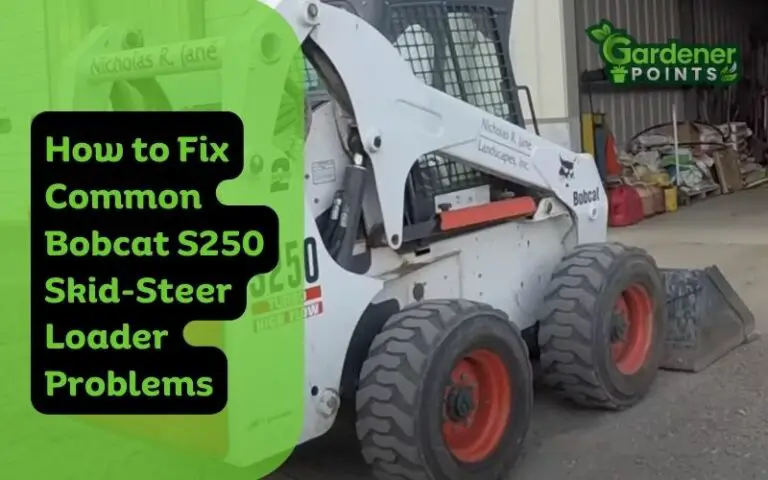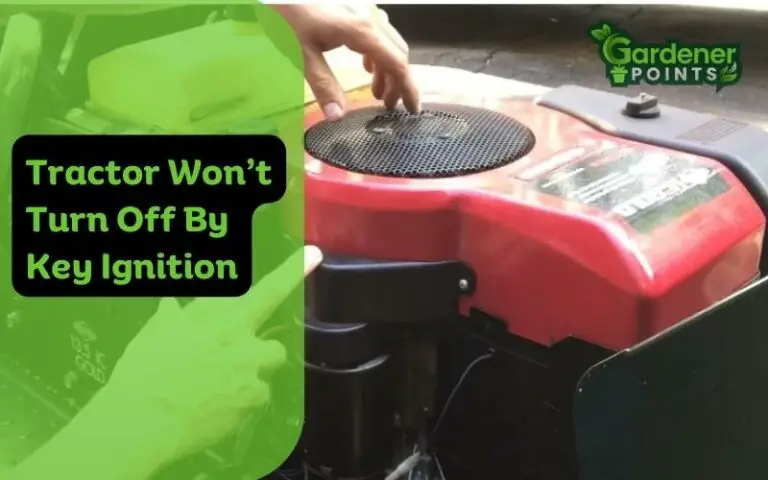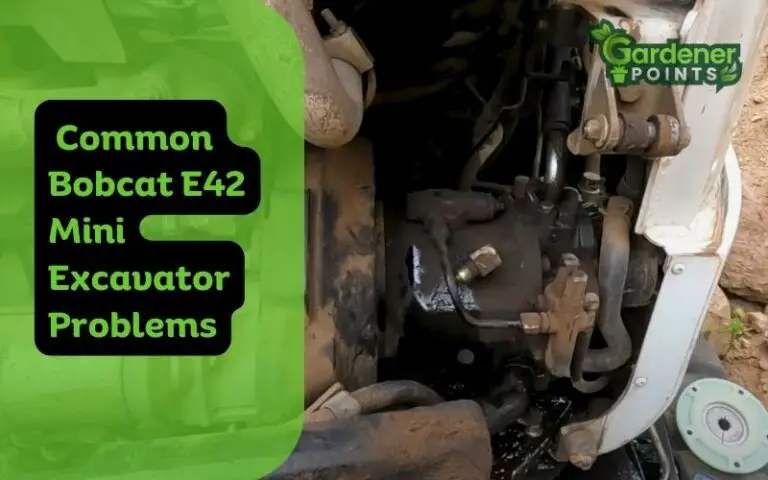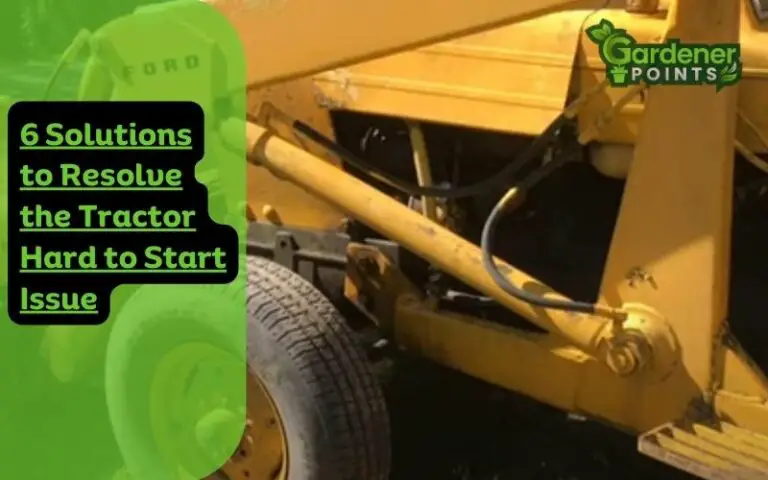8 Reasons Why John Deere Tractor Keeps Draining Battery
John Deere tractor batteries are much better than simply “good enough.” When required, it provides power.
Yet, it is pretty annoying when you need to take additional steps, such as charging it or changing the battery for your tractor to start. But why does the John Deere tractor keep draining the battery?
Weak battery wires or dirty or rusted connections can cause your John Deere battery to keep draining. Your battery can deplete due to a bad battery, a weak alternator, and having left equipment on. You could save both money and time if you identify these issues early.
Before immediately changing your tractor’s battery, continue reading to find out what’s affecting your battery to die.
Why Does John Deere Tractor Keeps Draining Battery?
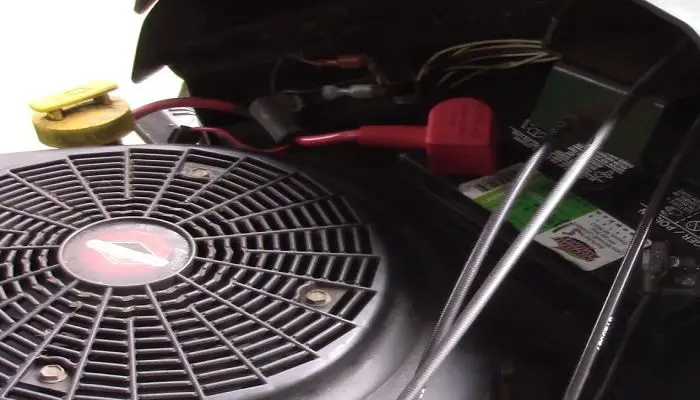
The John Deere tractor frequently has battery-draining problems. Similar to automobiles, tractors generally have a 12-volt battery. Even so, some have a 6-volt model that is smaller.
A tractor’s battery serves one primary function. It supplies the force required to turn the engine on. The tractor’s power system charges up the battery after it has started operating, making it ready for the next start.
This system is where a battery’s demise originates. Sometimes the problem is straightforward, but the root cause is more intricate.
Consider the following if your John Deere tractor battery is currently unable to maintain a charge and is discharging rapidly:
- Loose battery cables
- Faulty alternator
- Bad battery
- Leaving equipment on
- Low power limitation
- Dirty battery cable
- Drainage of electricity
- The tractor is not operating at full throttle
8 Solutions For John Deere Tractor Keeps Draining Battery
Any tractor battery will inevitably start to drain. We will discuss potential problems and how to solve them here.
1. Loose Battery Cables: Tightening
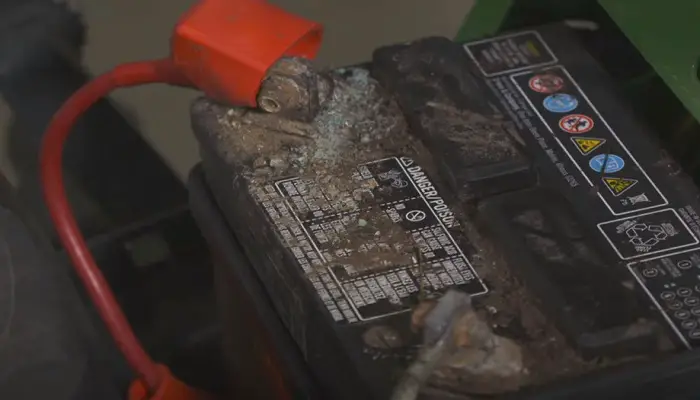
There could be a slight misalignment on the battery even if you might not have seen any symptoms of a shortage in the connectors. Unsecured cables are the most typical offender.
A loose battery cable will make it difficult for the battery to maintain proper operation. The bolts may gradually loosen due to the engine’s frequent vibrations. It will force your battery to put more effort into operating your John Deere tractor.
Inspect the battery connections where they typically attach. To check if any cable connections are weak, wriggle them all. Return to taking care of your yard after tightening any that require it.
The loose cable is typically free to fix. With a few tools, you can complete it on your own.
2. Faulty Alternator: Replace
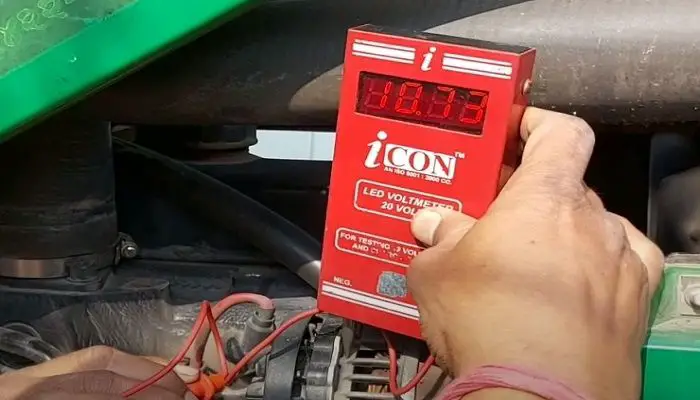
While the engine is operating, the alternator charges up the battery. It assists in keeping the electrical system functional.
If the alternator malfunctions, the battery must pick up the slack. Consequently, it won’t receive sufficient energy to maintain it in excellent condition.
Replacement of the defective alternator is necessary. Every time you operate your tractor after fixing it, the battery is recharged.
The price to fix the alternator can vary from $100 to $1,000 based on various variables. Although some alternators are simpler to access and require a shorter installation time, labor costs also differ.
However, labor costs should be between $200 and $600. Predict to shell out anywhere from $350 to $900 for an alternator substitute.
3. Bad Battery: Replace
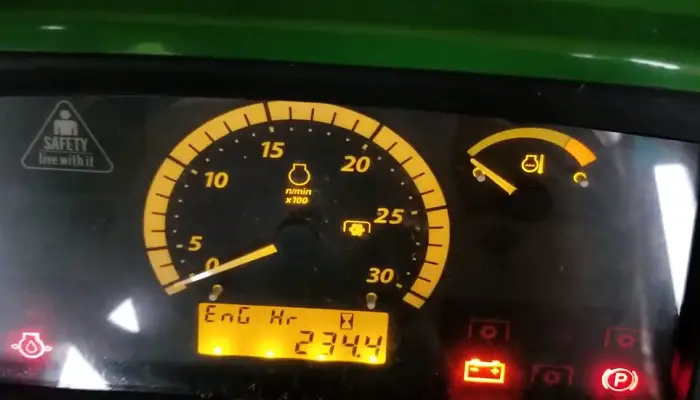
The majority of batteries arrive fully charged. However, if it has been in the store for a while, you might need to recharge the battery.
When you discover the battery on a charger for at least an hour or two and not charged above 12 volts, then it is faulty. If the issue persists, the battery will continue to deplete quickly.
Replace your battery to solve the problem. Take the tractor’s battery in for replacement after removing it from the vehicle.
Unless you don’t give back an old battery when you buy a new one, most retailers will cost you a battery core fee. The core fee typically ranges from $15 to $25.
4. Leaving Equipment On: Double Check and Turn Off
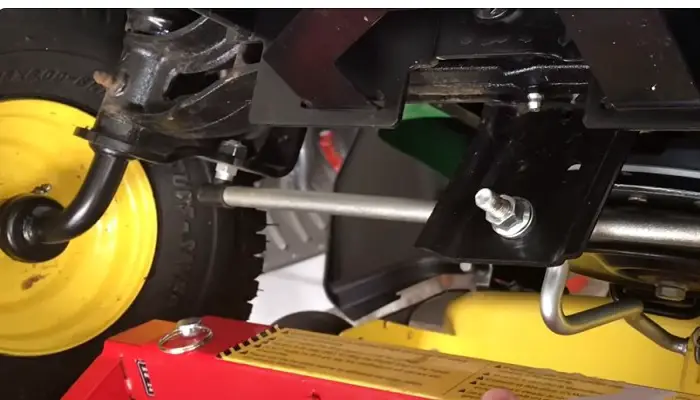
This might occur very rarely. People frequently forget things, but when they are rushing around, it’s even worse.
Perhaps the key wasn’t turned off, or the lamps were on throughout the day, and you failed to notice. People these days are all quite hectic, and errors such as this occur occasionally.
You only need to double-check yourself to solve this issue. Remove the keys, mount them adjacent, or place those in the tractor’s storage compartment. Once you’ve parked it, check to ensure all the lamps and posh devices are off.
The cost of fixing it is zero. You only need to invest your focus.
5. Low Power Limitation: Getting More Horsepower
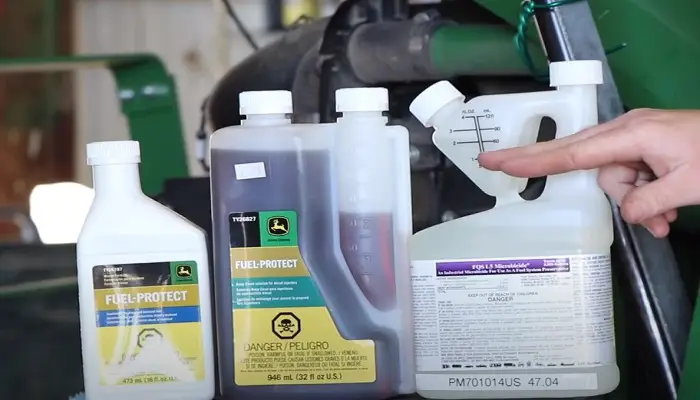
Small engines for tractors should typically have 550-foot pounds of torque per sec. That works out to about 745.7 watts.
To determine how much strength your tractor will typically produce, take note of the torque. If the battery’s potential is low, it will quickly deplete.
Substitute the flywheel on the upper edge of the engine. Look at the muffler and examine it to find any fractures or misalignments.
Substitute the muffler if any of these symptoms are visible. If the engine’s silencer isn’t clamped down, horsepower won’t operate as it should.
Additionally, you can switch to a gas with a higher octane content. Airflow generates more power. So substituting it monthly will improve the engine’s performance level.
6. Dirty Battery Cables: Remove Rust
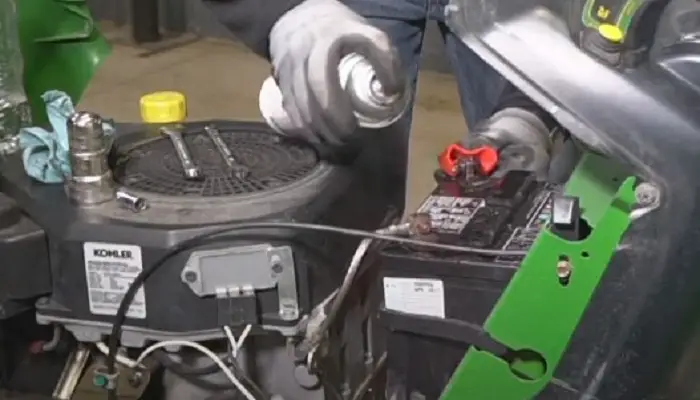
It occurs in your vehicles, and your tractor battery is susceptible. When hydrogen from the battery leaks, it interacts with the battery material. It will result in rust.
If the condition worsens, the battery won’t be able to recharge or be utilized to power the tractor at all. While annoying, there is an easy fix.
Put baking soda across the rusted areas after disconnecting the battery terminals. You must sprinkle water over the baking soda to dampen the rust and battery acid. If the rust is stubborn, you can remove it with a tiny wire brush if it is persistent.
After cleaning and drying the areas with paper towels, reconnect the wires. Finally, it would be best if you charged your battery.
You won’t pay anything to fix it. Almost everything you require is present in your house.
7. Drainage of Electricity: Using Alternator
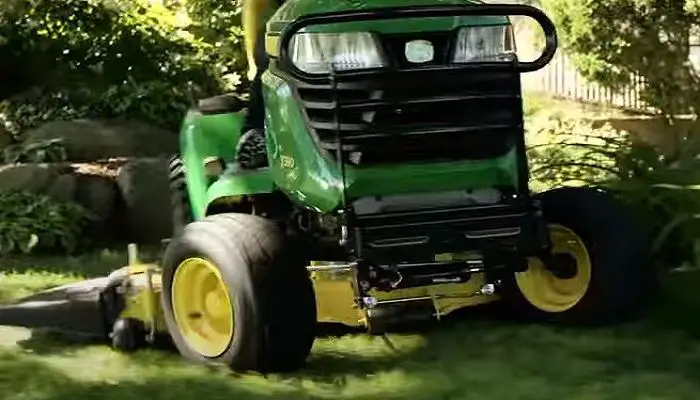
Typically, a tractor engine will display 6 or 12 battery-powered volts. Parasitic electrical drainage is a particular type of electrical drainage.
It occurs in tractor engines. Whenever the tractor engine is turned off, but the power system depletes the battery, this is what happens.
You can repair it with an alternator. It recharges the battery and provides power output to the working engine.
8. The Tractor Not Operating At Full Throttle: Running At Full Throttle
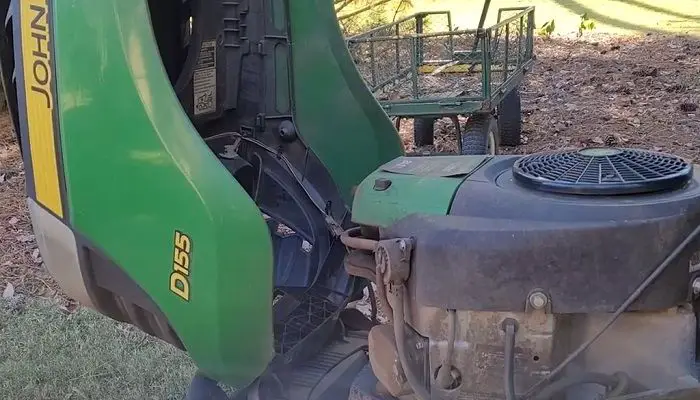
Your battery drain can result from not using the full throttle. If the motor isn’t spinning at its maximum RPM, the battery could not be getting a complete charge.
So feel free to open the throttle and drive your tractor hard. It was designed to operate at full power.
The next time, just operate it at full power to see how long the charge will last.
FAQs About John Deere Tractor Keeps Draining Battery
Built for arduous work, John Deere tractors are durable. But inquiries are something that people frequently make. A few are as follows:
Why won’t the battery in my tractor keep a charge?
You might have a poor battery if the power system in your tractor is not operating correctly. A battery is a feature of tractors. It charges as the engine works. Poor batteries may not fully charge or may quickly lose their charge.
How long does a tractor battery last?
Batteries for tractors typically last two years. Cranking Power is significantly decreased with decreasing temperature.
Nevertheless, this is impossible to guarantee because it varies based on various variables, including weather conditions, upkeep, and user behavior.
Does a blown fuse cause battery drain?
It’s not probable that a blown fuse is causing your battery to discharge. An electrical conduit is a fuse. A headlamp or turn signal won’t operate if a fuse blows. It may occasionally result in an open circuit that drains energy.
Bottom Line
The battery in your tractor generates and stores electrical energy. It powers the various electrical circuits. These circuits’ cables, adapters, and parts deteriorate over time. This can lead to a variety of problems, including unintentional connections.
Hopefully, this has clarified your concerns regarding why the battery keeps draining in your John Deere. You won’t need to keep wondering or asking your friends about this.
You can find the issue and fix the battery drain on your own if you have the necessary tools. Try the recommendations and observe if it returns to sustaining charge.
Related Posts:
- Rural King Tractors Are Junk: What To Do?
- 5 Solutions for Tractor Not Shutting Off with Key
- How To Adjust The PTO Clutch 1997 Mahindra Model 435D1?
- 5 Reasons Kubota B2400 HST No Hydraulics and How to Fix
- 6 Common John Deere 185 Hydro Problems and Solutions

Say hello to Afrabby – your go-to research expert turned gardening expert, lawn care aficionado, and a skilled lawn mower mechanic! With years of hands-on experience and a passion for cultivating lush green landscapes, Afrabby is your partner in achieving the lawn of your dreams.
Whether you’re seeking expert advice on plant selection, weed control, or optimal mowing techniques, Afrabby’s got you covered. Equipped with the knowledge to diagnose and fix mower troubles, your lawn equipment is in safe hands. Let Afrabby transform your outdoor space into a stunning oasis you’ll love to show off!

